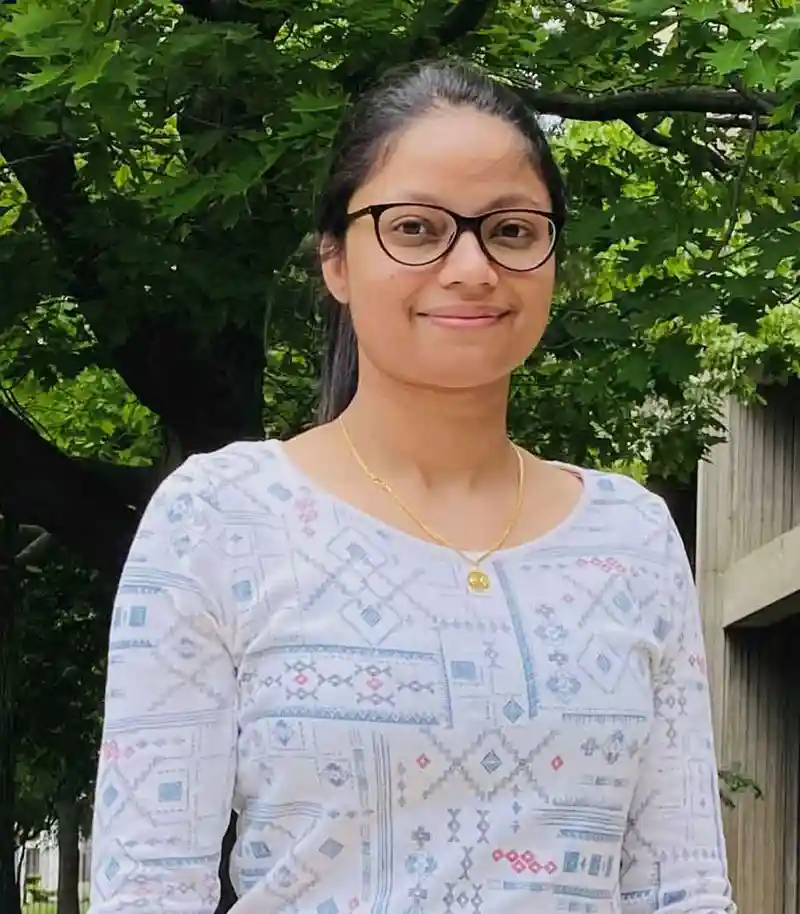National Institutes of Health fellow researches ways to get health information into the hands of consumers
Meet Shweta Yadav, Ph.D.
Shweta Yadav, Ph.D. in technology, used to run science experiments with her father when she was young. Having learned first-hand from her parents how STEM can impact the world, Yadav developed a great love for science, which led her to an academic career in technology.

Shweta Yadav uses machine learning to find new ways to help consumers get quick, reliable answers to health related questions. (Photo Credit: Shweta Yadav)
She first heard about the National Institutes of Health’s (NIH) National Library of Medicine Research Participation Program through a friend. NIH programs provide college students, recent graduates and postdoctoral fellows with opportunities to participate in project-specific NIH research, current public health research and developmental activities. The programs promote networking with world-class scientists and use of state-of-the-art equipment to expand students’ knowledge in their fields of study while exposing them to new areas of basic and applied research. These research activities help transition classroom theory into hands-on experience, and help provide answers to today’s pressing scientific questions.
After being accepted into the program, Yadav spent one year with NIH under the guidance of her mentor, Dr. Dina Demner-Fushman. Her research project was to develop a summarization model for novel questions in the medical field. Yadav and Demner-Fushman hope to make it easier for consumers to get health related information through machine learning, especially natural language processing. By the end of her fellowship she helped to create a natural language question-answering system that was able to reliably answer questions based on multiple sources of health-related information systems.
“A recent survey showed that on average eight million people in the United States seek health-related information on the internet every day,” Yadav explained. “A potential solution to support consumers in their health-related information search is developing an automatic natural language question-answering system that can extract reliable and precise answers from various health-related information sources.”
Her research will help consumers receive better care. This includes faster responses to possible adverse drug effects, quicker diagnostic tools for healthcare professionals, and quicker question response times for consumers.
Yadav was excited to be in a top tier research lab where she could focus on and gain new experiences. A typical day for Yadav as a fellow was writing algorithms, running experiments, and reading literature. She said that the NIH program shaped her research goals and enhanced her skills within the biomedical field. Brainstorming with her team and mentor was one of her favorite experiences, which led her to novel ideas.
Yadav, along with others on her team, had their research published during her fellowship. This includes being published in the Journal of Biomedical Informatics, in Proceedings of the 59th Annual Meeting of the Association for Computational Linguistics and the 11th International Joint Conference on Natural Language Processing (Volume 2: Short Papers), and then in Proceedings of the 20th Workshop on Biomedical Language Processing.
She was also able to present her research at the 2021 Annual Conference of the North American Chapter of the Association for Computational Linguistics and The Joint Conference of the 59th Annual Meeting of the Association for Computational Linguistics and the 11th International Joint Conference on Natural Language Processing.
Since ending her fellowship, Yadav wants to become an independent researcher in the healthcare informatics and computational linguistics field.
When asked if she would recommend the NIH Research Participation Program Yadav said: “Yes, I would definitely encourage others. The postdoc program offers you the opportunity to grow as an independent researcher with the flexibility to pursue your research goals while also providing you with the opportunity to collaborate with leading scientists and researchers.”
The NIH Research Participation Program is funded by NIH and administered through the U.S. Department of Energy’s (DOE) Oak Ridge Institute for Science and Education (ORISE). ORISE is managed for DOE by ORAU.

